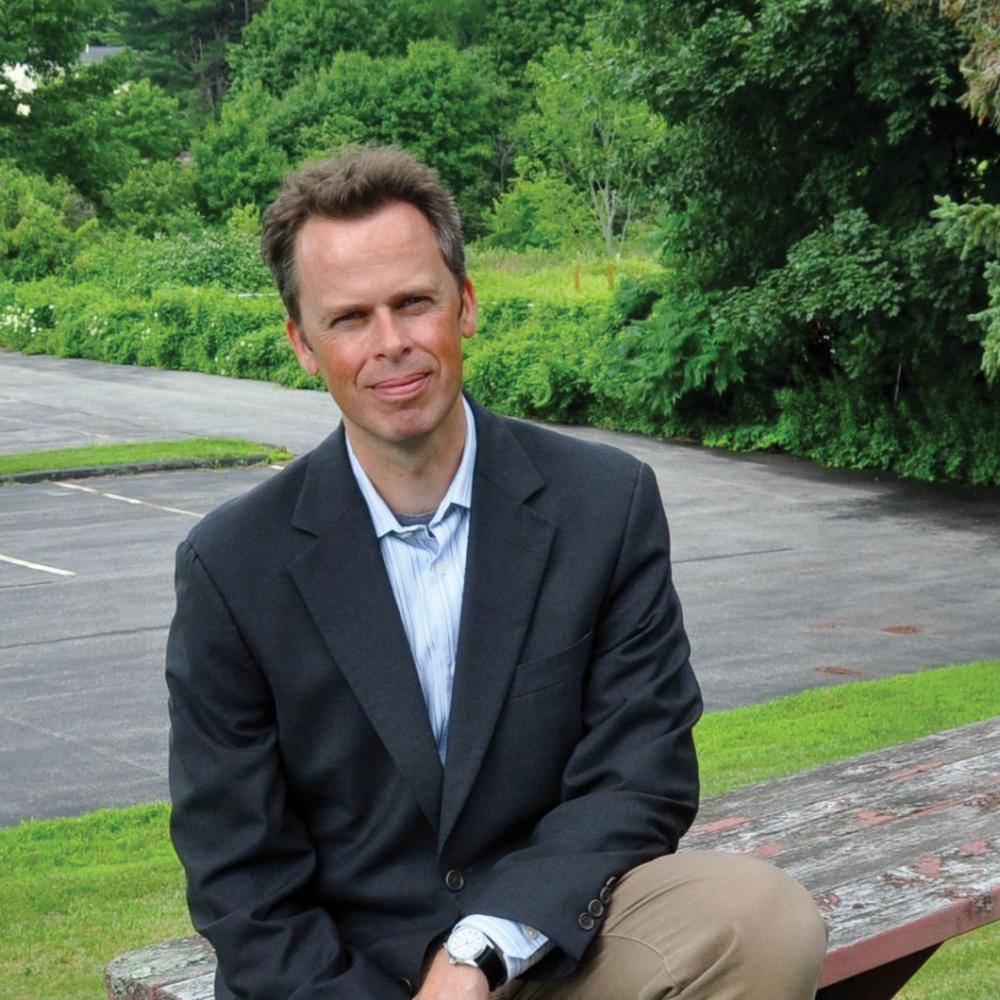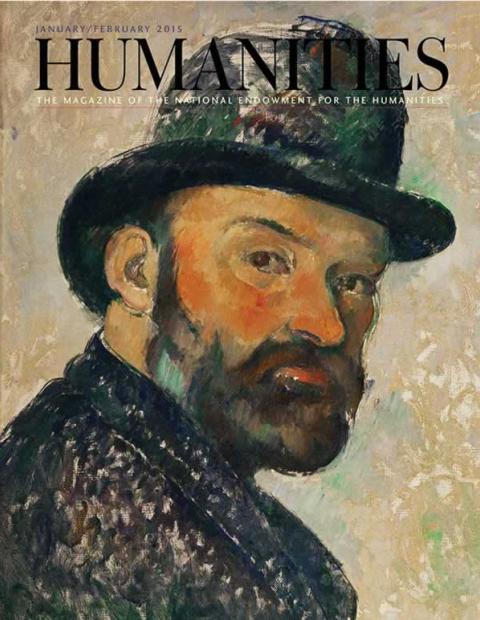In 1997, while working on his doctoral thesis about philosopher Immanuel Kant’s theory of experience, Hayden Anderson took second prize at the Chester, New Hampshire, Fair for his blueberry pie. To this day, he believes he might have taken the blue ribbon had the judge sliced a piece of his pie instead of plunging a spoon directly into the middle of it. One of the distinctive features of a Hayden Anderson pie is that it holds together nicely and does not run all over the plate, a virtue of coherence lost on the spoon plunger.
Asked to what he ascribes his success as a pie baker, Anderson quips philosophically and facetiously, “Practice and purity of thinking.”
In fact, however, the combination of high-mindedness and handiness and idealism and practicality recommended Hayden Anderson to become the executive director of the Maine Humanities Council.
“We had a nationwide search in 2011 that attracted one hundred and four candidates,” says Maine Humanities Council chair Peter Webster, a Portland attorney. “We selected Hayden because we were impressed by his youthful charm, his intelligence, and his enthusiasm. It was a spectacular choice.”
Anderson grew up in Londonderry, New Hampshire, majored in philosophy at Amherst and earned his PhD in philosophy at Notre Dame in 2000. By the time he graduated, however, he had decided he did not want to pursue an academic career. He felt more drawn to a life of community involvement.
“I found my home in the nonprofit universe,” says Anderson, who worked as an administrator and fundraiser in summer camps, higher education, and legal aid before taking over the helm of Maine’s council in 2012.
Though the council employs a development director, Anderson’s background in development comes in handy at the council, where the $1.4 million annual budget is supported both with funds from the National Endowment for the Humanities and from private sources.
“I see my role,” says Anderson, “as removing barriers, clearing the ground for our staff and scholars to do their work.”
One of the Maine Humanities Council’s high profile programs is Literature & Medicine: Humanities at the Heart of Healthcare, a book group series aimed at an array of healthcare workers ranging from doctors and nurses to technicians and clerks. Started in 1997, Literature & Medicine has since spread beyond Maine’s borders, and, in 2008, the Maine council published Imagine What It’s Like, a 650-page anthology of readings on illness, trauma, death, and recovery.
Participants in the Literature & Medicine series, says Anderson, “have found they were better able to communicate with their coworkers, had their feelings of burnout alleviated, and had increased empathy for their patients. One of the things literature can do is bridge gaps, help you come to understand another person’s story.”
The success of the book group project with healthcare workers has inspired the council to develop Literature & Medicine programs focused on Veterans Affairs personnel, hospice workers, those active in the domestic violence prevention field, and, most recently, combat veterans.
“Based on the Literature & Medicine program,” says Anderson, “we are now piloting a program in thirteen states to bring reading and discussion programs directly to veterans themselves.”
With a $150,000 National Endowment for the Humanities grant, the Maine council developed Coming Home: A Book Group for Combat Veterans. Its first reading was Homer’s epic poem the Odyssey.
“Veterans have said, ‘This expresses things I have felt for forty years but didn’t have the words for,’” says Anderson of the ancient poem’s contemporary appeal. “The Odyssey is the story of a warrior coming home and the long journey that is. It’s so immediate to their experience. If you need proof that art is relevant to everyday life, there you go. There’s a reason that poem is three thousand years old and we still read it.”
Anderson, who confides that he is still working his way through Homer’s twelve-thousand-line poem, spent years studying the esoteric writings of Kant, but these days he is too busy helping his wife, Meredith, deal with the empirical reality of their infant son, Gus, to indulge his former passion for metaphysics.
“Immanuel Kant and The Critique of Pure Reason do not loom large in my professional life,” Anderson admits, “but engagement with that kind of thinking and that kind of art do open one’s perceptions, make one more empathetic, and aid in critical thinking.”


